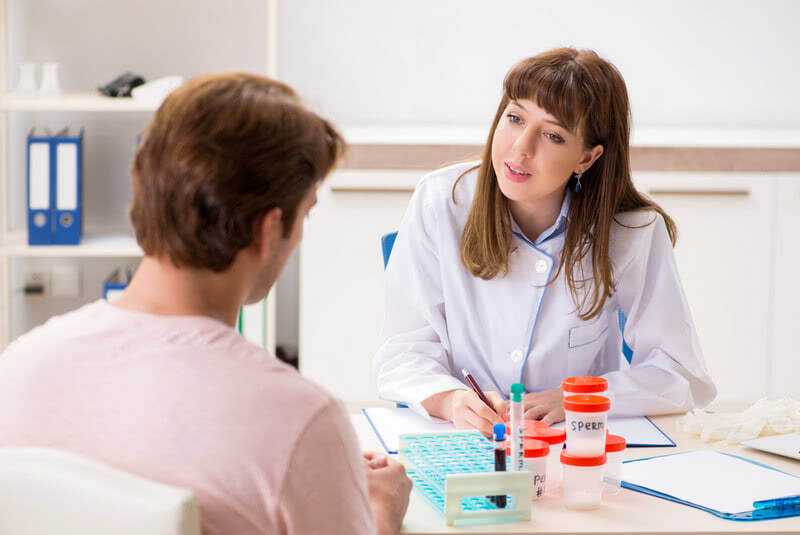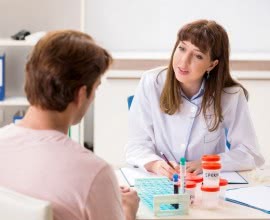The Rigorous Process to Becoming a Sperm Donor
Sperm donation is a voluntary procedure where a male donates his semen, which is the fluid containing sperm that is released from the body through ejaculation.[1] It’s a procedure used to help individuals and couples suffering from infertility issues, single females without a male partner looking to conceive or same-sex female couples wanting to start a family.
If your one of the aforementioned individuals or couples looking for a sperm donor, you may choose to use a sperm bank. Also known as a semen bank or cryobank, a sperm bank is a facility that purchases, stores and sells human semen produced by men known as sperm donors.[2]
Contrary to popular belief, becoming a sperm donor is easier said than done and though each country, state and sperm bank facility will have their own rules and regulations, here are common procedures and requirements that are expected of potential sperm donors.
Age
Potential sperm donors need to be a minimum of 18 years of age and up to a maximum of 34-40 years of age depending on where you are in the world.[3] The age of the donor is often called into question as logically, sperm count tends to decrease with age.
Physical Exam
All potential sperm donors will undergo a physical in order to determine their level of health and the exam includes providing the clinic or sperm bank with blood and urine samples to test for infectious diseases such as HIV and STDs.[4] If a male gets approved to be a sperm donor, they may be required to undergo a physical every six months and to report any and all changes to their health.[5]
Semen Testing
As this is the product the male individual will be providing, it makes sense that their semen will be carefully and rigorously tested for sperm quality, quantity and movement.[6] Depending on the clinic or sperm bank, potential sperm donors may have to provide multiple semen samples for testing and examination.[7]
Genetic Testing
All potential sperm donors will have to undergo genetic testing to rule out any possibility of them carrying genetic markers for a miasma of genetic diseases.[8] Genetic testing usually involves the individual providing a blood sample.

Family Medical History
It would be a smart idea for the potential sperm donor to brush up on their family medical history before they go and get tested at the clinic or sperm bank as they will be asked to disclose their family medical history in as much detail as possible. Family medical histories are important to rule out any hereditary diseases that the potential sperm donor may have inherited.[9]
Personal History
Individuals and couples looking for a sperm donor will not only want their medical history but information on the individual’s hobbies, interests and activities as well as these factors could be things that their potential child could inherit or be skilled in.[10] Depending on the clinic or sperm bank, the potential sperm donor may be asked to provide pictures, videos and/or audio recordings of themselves for the clients to access.
Sexual History
All potential sperm donors will have to submit a detailed report about their sexual activities – are they currently sexually active; how many sexual partners have they been with; any issues related to sex etc. Providing a detailed sexual history will help the clinic or sperm bank eliminate possibilities of sexually transmitted diseases such as HIV.[11]
Psychological Evaluation
Lastly, potential sperm donors may be required to undergo a full psychological evaluation in order to determine whether or not there are mentally fit and healthy to donate their sperm for others to use. The clinic or sperm bank may also ask questions such as whether or not their personal information can be shared with their future biological children and whether these children may contact them.[12] If the potential sperm donor is married or has a partner, they may also be asked to participate in the evaluation to ensure that all parties are comfortable and consenting to the donation of sperm.

In conclusion, becoming a sperm donor is easier said than done. It’s not as simple as popping into a sperm bank, clearing the pipes and collecting a check. To become a sperm donor, one has to be willing to undergo rigorous scrutiny and testing regarding their personal, familial, medical, psychological and sexual history; and should a discrepancy arise in any of these categories it would most likely disqualify the individual from becoming a sperm donor.
Sources:
[1] Mayo Clinic Staff, ‘Sperm Donation – Overview’, in Mayo Clinic, published July 17th, 2018, viewed on May 5th, 2019, https://www.mayoclinic.org/tests-procedures/sperm-donation/about/pac-20395032
[2] ‘Sperm Bank’, in Wikipedia, viewed on May 5th, 2019, https://en.wikipedia.org/wiki/Sperm_bank
[4] ibid
[5] ibid
[6] ibid
[7] ibid
[8] Mayo Clinic Staff, ‘Sperm Donation – Overview’, in Mayo Clinic, published July 17th, 2018, viewed on May 5th, 2019, https://www.mayoclinic.org/tests-procedures/sperm-donation/about/pac-20395032
[9] ibid
[10] ibid
[11] ibid
[12] ibid














